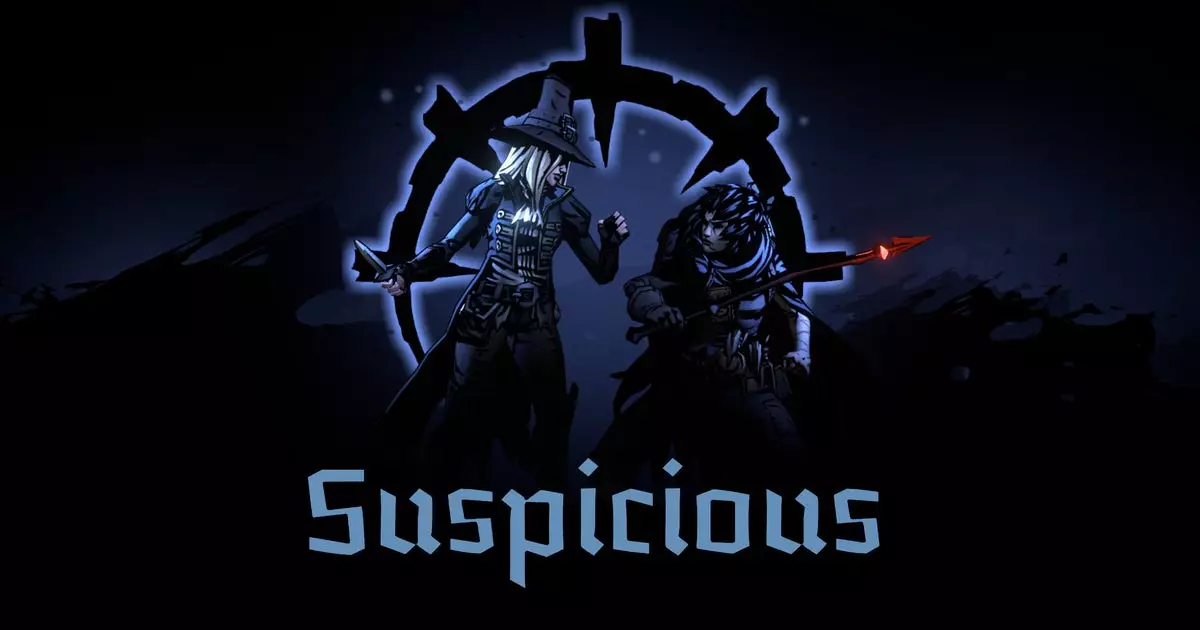The video game industry thrives on innovation, creativity, and sometimes unexpected mergers that can redefine the landscape of gaming. The recent announcement from Behaviour Interactive regarding its acquisition of Red Hook Studios, the creators of the acclaimed Darkest Dungeon, has certainly stirred conversation among gamers and industry analysts alike. This merger, however, comes at a complicated time for Behaviour, raising questions about its motives and the future trajectory of both companies.
Behaviour Interactive has made headlines in recent times not just for its successful titles, like Dead By Daylight (DBD), but also for some tumultuous changes, including layoffs, studio closures, and cancelled projects. The closure of Midwinter Entertainment, after Behaviour absorbed its talent, indicates a strategic shift that may not sit well with all stakeholders. While consolidating talent can enhance a company’s capabilities, the ramifications of layoffs and cancellations can create an atmosphere of uncertainty.
The decision to acquire Red Hook could be seen as both an opportunistic move to strengthen Behaviour’s portfolio in the horror genre and a reaction to the internal instability. Uniting under the banner of a company that appears to be reeling from its own restructuring efforts raises eyebrows. Will Red Hook thrive in this new environment, or will it become yet another appendage within Behaviour, subject to the pressures that come with corporate acquisition?
Red Hook Studios: A Class Act in Game Design
Red Hook Studios has carved a niche in the industry with its distinctive blend of gothic horror and strategic depth in Darkest Dungeon. The game has earned critical acclaim for its innovative turn-based mechanics and stunning visual aesthetic. The unique challenge it presents has not only garnered a dedicated fan base but also positioned it as a standard-bearer for the dark fantasy genre. The studio’s ethos focuses on creating games that engage players on a psychological level, testing their patience and skill.
In statements following the acquisition, Red Hook co-founder Chris Bourassa expressed optimism about the partnership, describing Behaviour as “kindred spirits.” Throughout their history, both studios prioritize the horror genre, and this shared passion may yield fruitful collaborations. Yet, it’s essential to scrutinize what true independence entails in this new alliance. While Red Hook retains its team, will the creative autonomy they once enjoyed remain unscathed under Behaviour’s wing?
The Concept of Independence in an Acquisition
The notion of “independence” in game development is complex, particularly when it comes to acquisitions. Behaviour claims Red Hook will operate as a fully independent studio, but what role will Behaviour play beyond funding? Will Red Hook be able to maintain its creative vision without interference from Behaviour’s desire to align its portfolio under a unified corporate horror brand? The future will reveal whether this partnership fosters innovation or stifles it.
Behaviour’s CEO, Rémi Racine, frames the consolidation as a yearn to expand Behaviour’s horror gaming library. This suggests that Behaviour is strategically positioning itself to become a prominent player within the genre, perhaps even at the expense of Red Hook’s identity. The prospect of being absorbed into a larger corporate strategy raises legitimate concerns about how much creative input Red Hook will retain and whether its games will continue to deliver the unique experiences they are known for.
The acquisition has left many fans feeling ambivalent. While some celebrate the potential for greater resources and broader reach for Red Hook, others express skepticism, drawing attention to Behaviour’s history of cannibalizing IPs within its existing portfolio. The playful warning to Red Hook to “keep your distance” from the possible integration with Dead By Daylight highlights these concerns. There is a legitimate fear that the essence of what makes Red Hook special may be diluted to fit within Behaviour’s broader commercial aspirations.
For the gaming industry at large, this merger poses critical questions about creative integrity amidst corporate consolidation. As larger game studios seek to expand their influence by acquiring smaller, innovative teams, the balance of power in game development continues to shift. Companies must navigate these dynamics carefully, ensuring that the defining spirit of creativity is not lost in the pursuit of scale and profitability.
Looking Ahead: A Cautious Optimism
As Behaviour Interactive and Red Hook Studios embark on this new chapter, it will be crucial to monitor how both entities evolve. Will they leverage their combined strengths to create groundbreaking horror games that resonate with both new and existing fans? Or will the acquisition translate into a monolithic production line that prioritizes profitability over innovation?
The gaming community will be watching closely. While Behaviour’s ambitions to become synonymous with horror are commendable, it is the legacy and continued creativity of studios like Red Hook that will ultimately determine their success. Balancing growth with the preservation of unique visions will be the key to nurturing a healthy and vibrant industry.


Leave a Reply